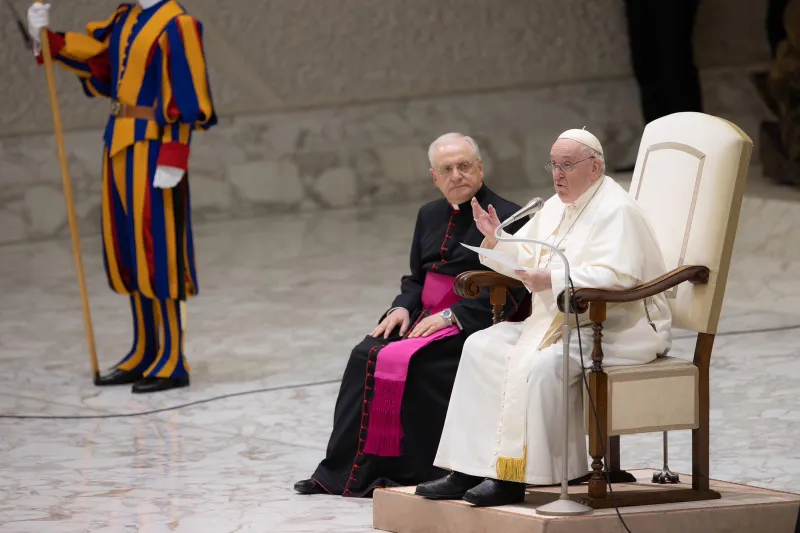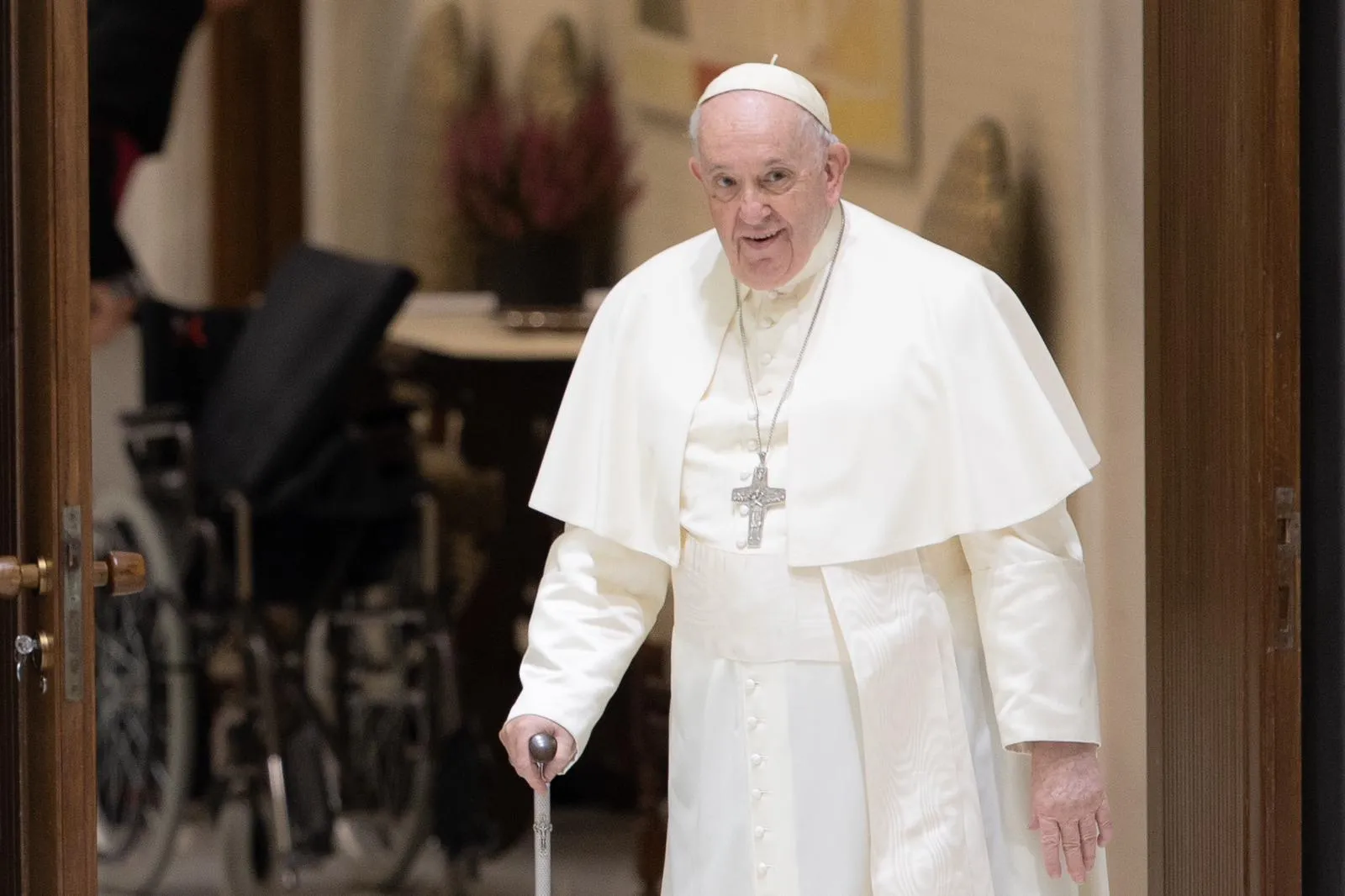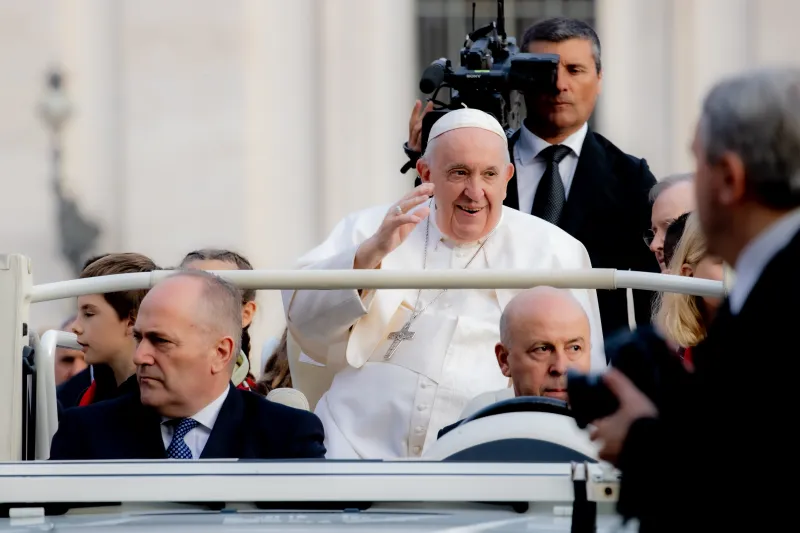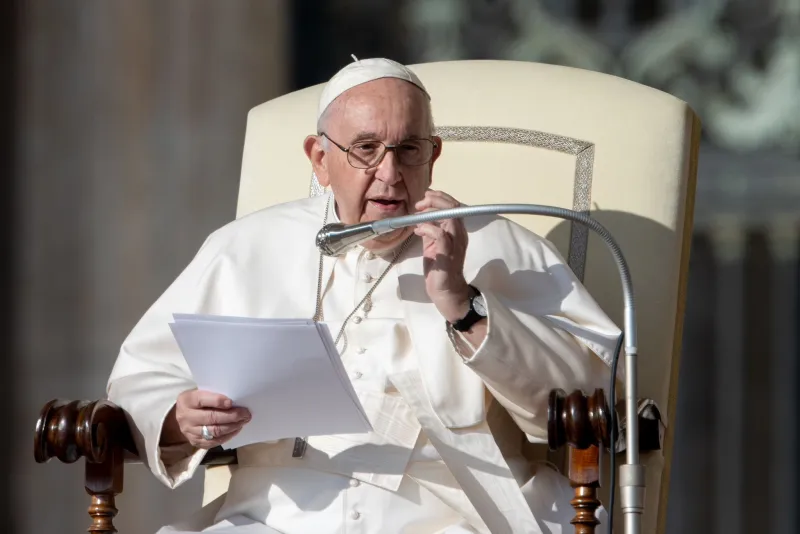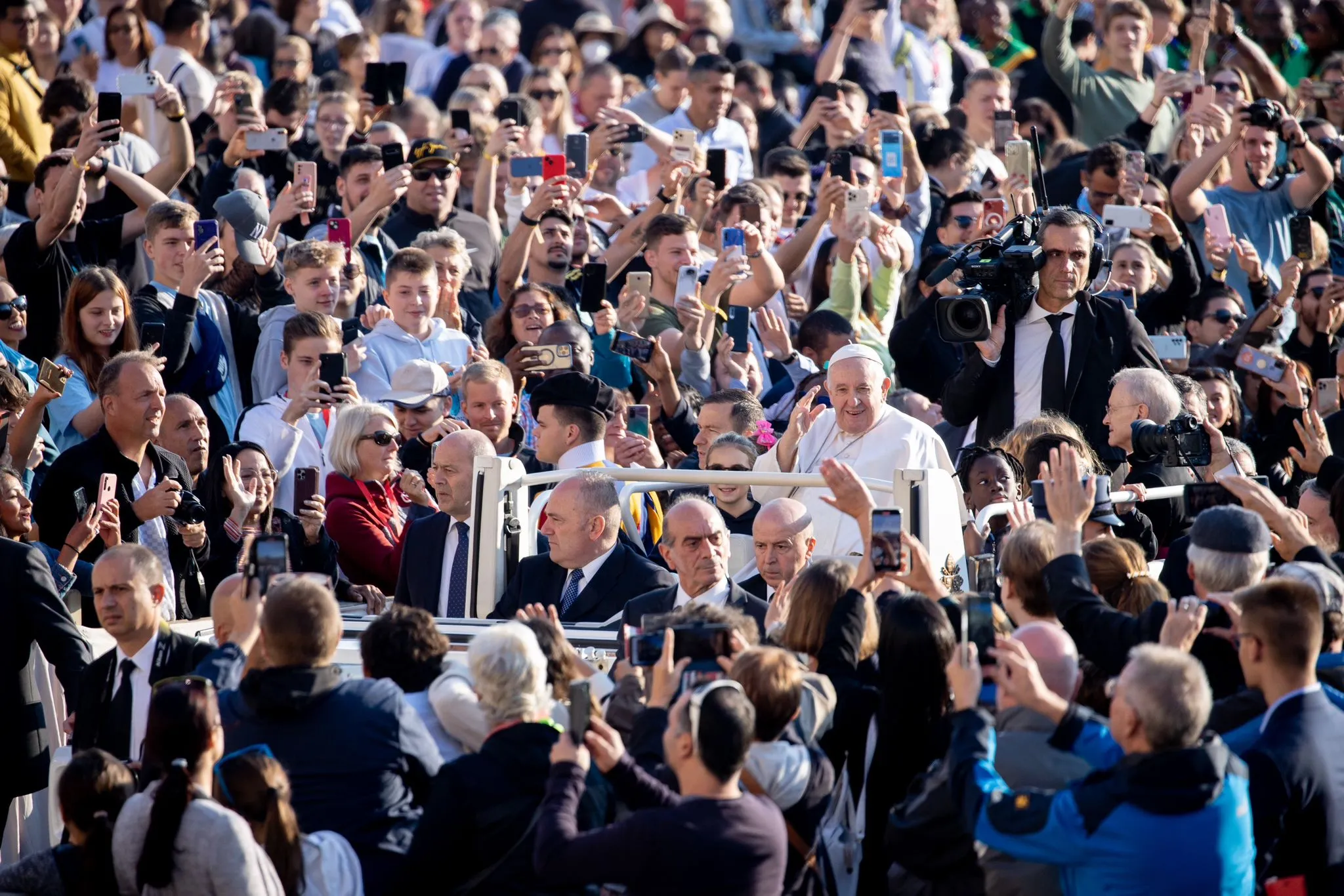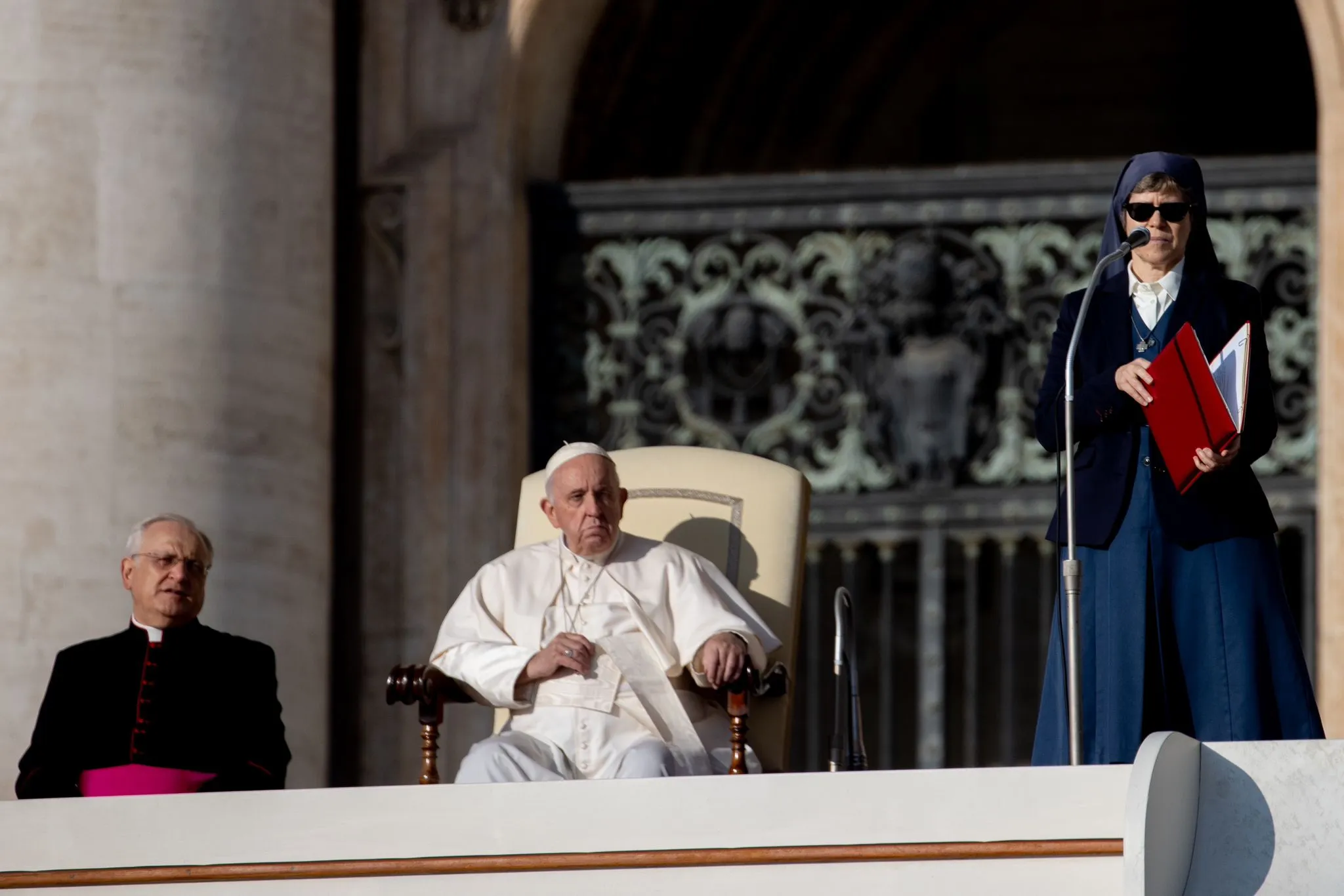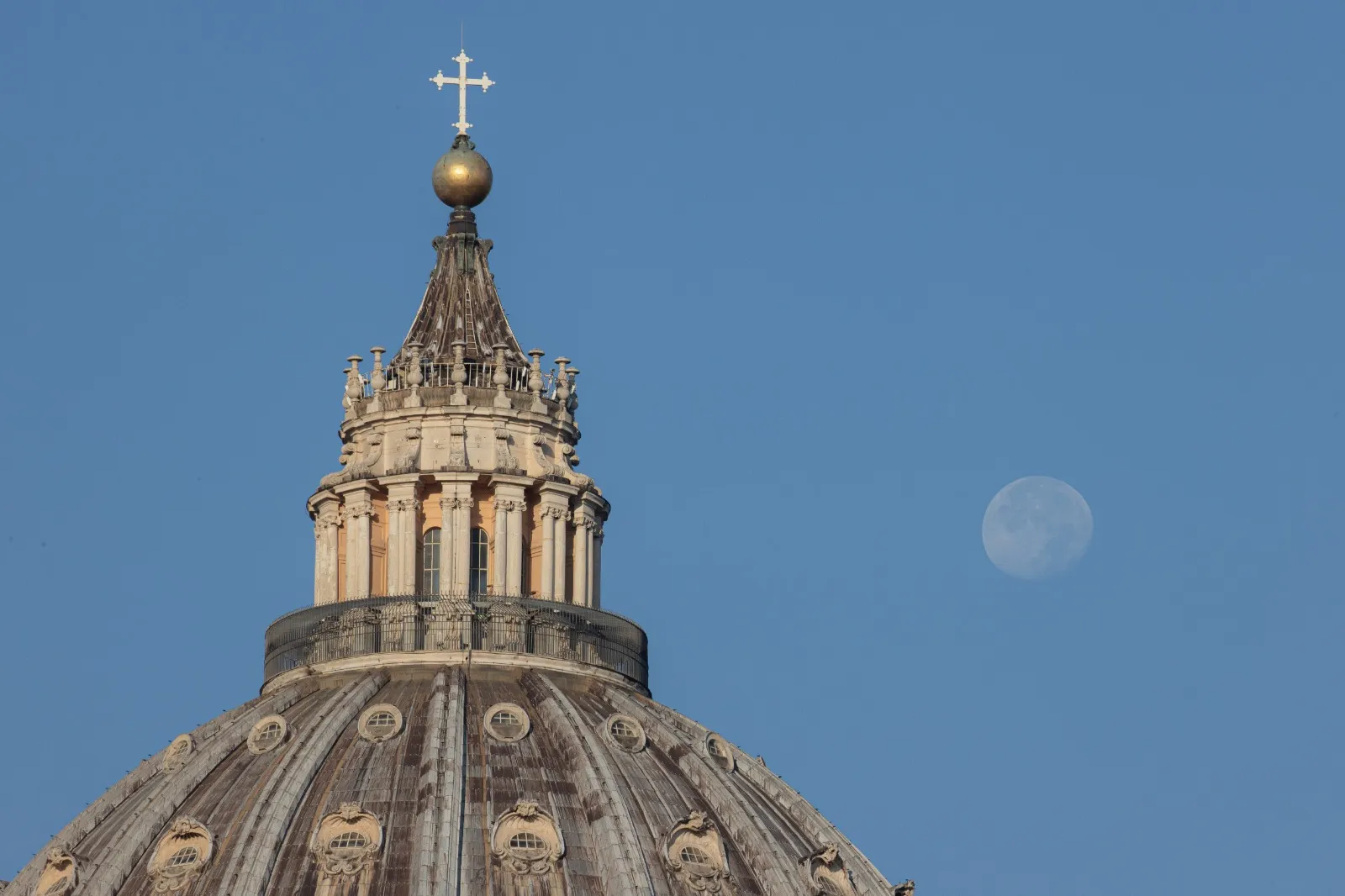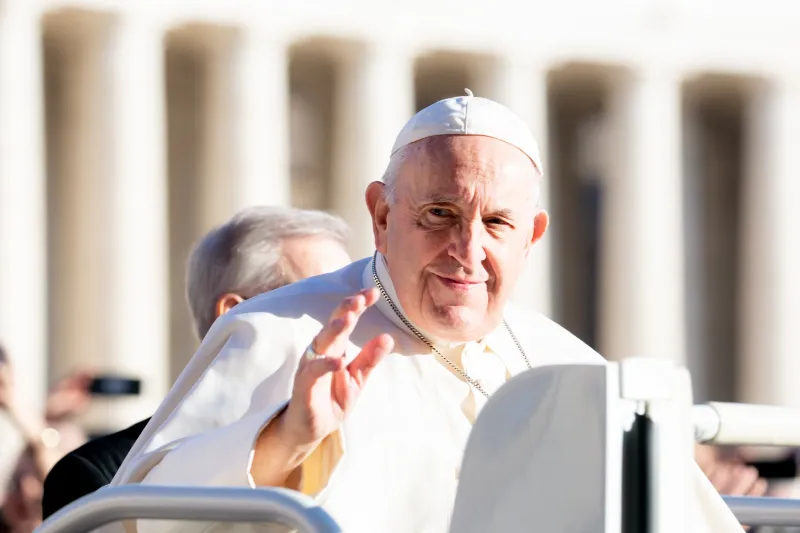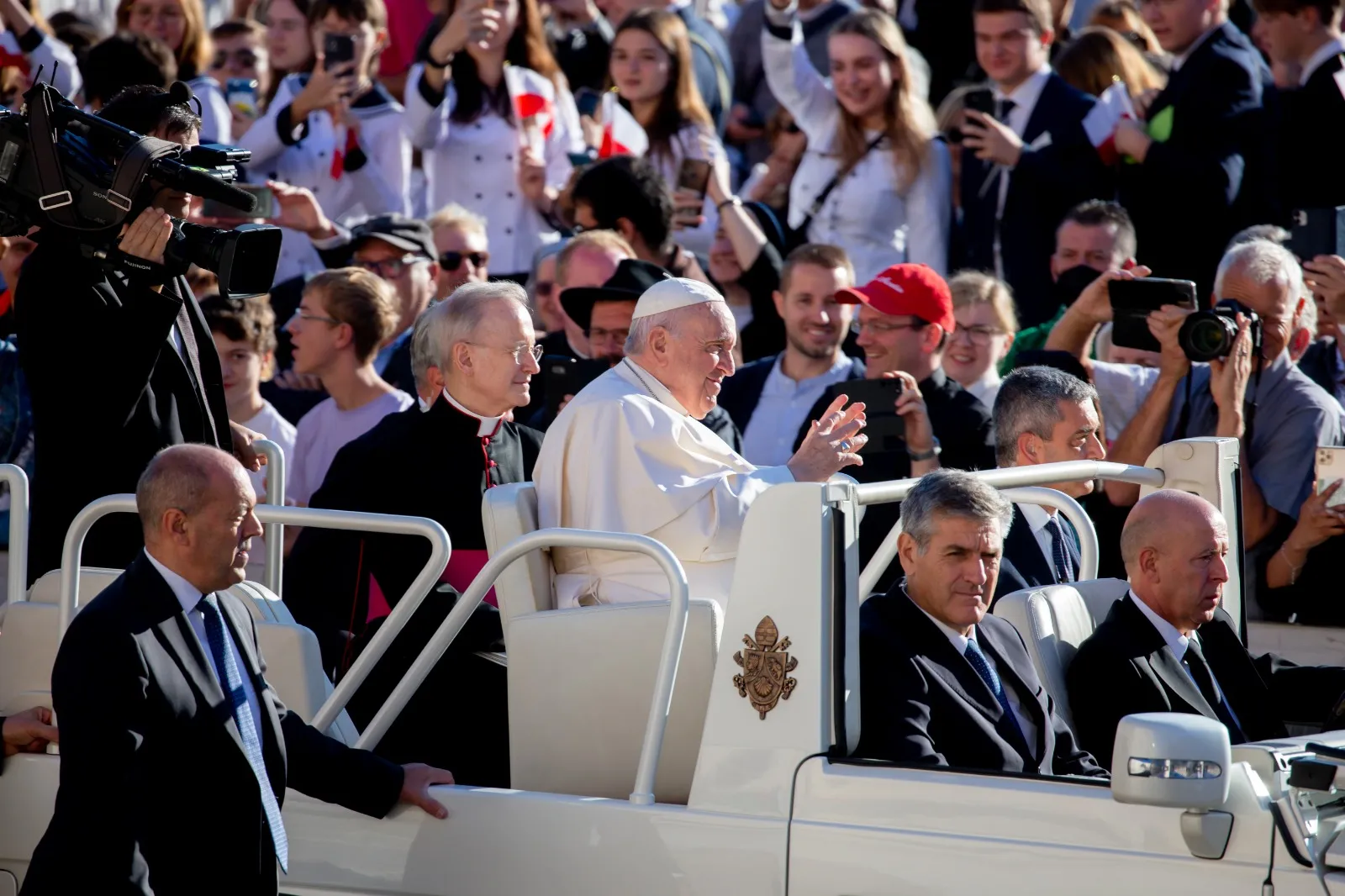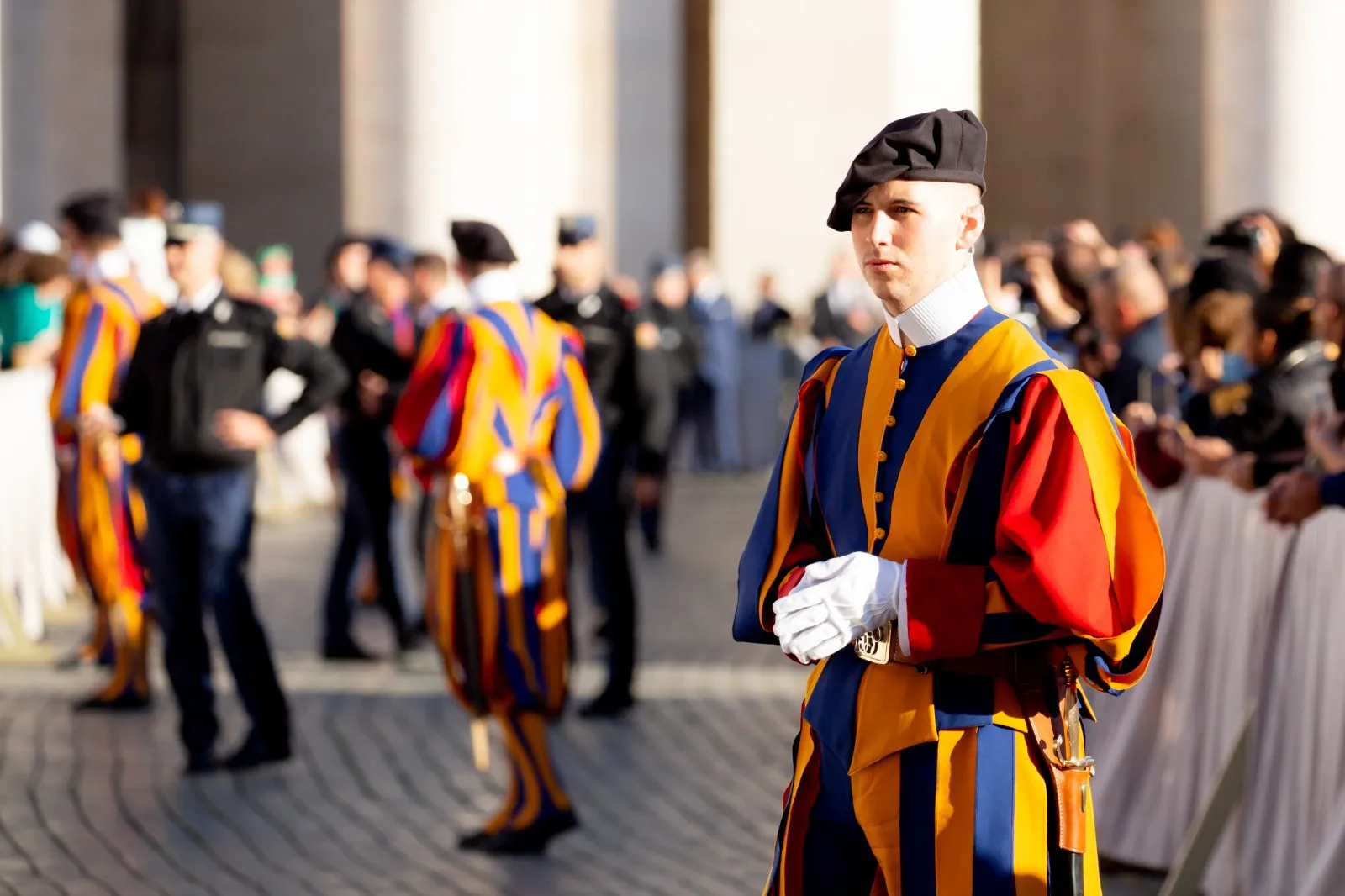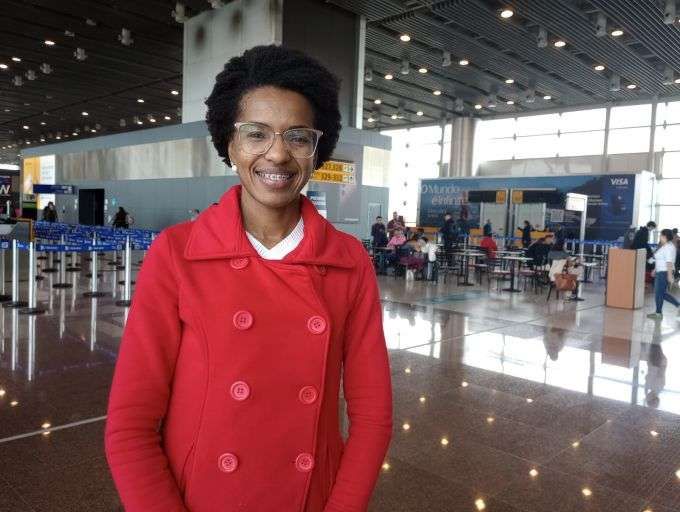 Daiane Silva Pereira, 29, has been to every World Youth Day that Pope Francis has attended. Each of them played an important role in her discernment of religious life and now she’s in Lisbon for WYD 2023 as a member of the religious community Comunidade Canção Nova. / Credit: Natalia Zimbrão/ACI Digital
Daiane Silva Pereira, 29, has been to every World Youth Day that Pope Francis has attended. Each of them played an important role in her discernment of religious life and now she’s in Lisbon for WYD 2023 as a member of the religious community Comunidade Canção Nova. / Credit: Natalia Zimbrão/ACI Digital
ACI Digital, Jul 31, 2023 / 14:40 pm (CNA).
Daiane Silva Pereira, 29, is a missionary of the Canção Nova Community in Cachoeira Paulista state in Brazil. On July 30 she embarked for Lisbon, Portugal, for her fourth World Youth Day (WYD). During her WYD experiences, she saw the awakening and maturation of her vocation.
“I had never stopped to think about it, but I have really followed Pope Francis in this. I see that it is also a move of God. The speeches of Pope Francis, the themes of the days always fit like a glove within what I was experiencing,” she told ACI Digital, CNA’s Portuguese-language news agency, hours before boarding.
Pereira’s first WYD was in Rio de Janeiro in 2013. That was also Francis’ first WYD as pope and his first international trip after his election in March of that year.
“During Missionary Week, the week leading up to WYD, we welcomed 146 Norwegians in my city, Viçosa,” she recalled. “For me, it was an unimaginable experience, because I had never had contact with people from other countries and I could get to know their culture, their faith.”
She added: “For example, some shared with me that in my city, we could wear a shirt with a religious print, such as ‘Jesus Christ’ written on it, but in their city, some could not even say that they were Christians, they were persecuted … mocked. This was very shocking to me, because many times, we do not value what we have. It was an awakening.”
The theme of WYD Rio 2013 was “Go and make disciples among the nations.”
“There, at the Rio WYD, I had my call to find out what God had for me,” Pereira explained. “… I was already walking in the Church but had not taken [further] steps. It was there that I began to realize that I needed to go deeper.”
Pereira recalled that she had already been to Canção Nova in Cachoeira Paulista in 2011 and in 2013, when she participated in the youth meeting Jesus Revolution, which took place in January. She returned for this meeting in 2014.
“I came back and the Lord had already asked me: ‘Don’t you want to take steps? Then do it.’ But I didn’t think I could,” she said.
In 2015, she said she felt God telling her: “Here is your place.”
“But I thought, ‘How can I let go of everything?’ It didn’t make sense in my head so I extended it another year,” she said.
In 2016, Pereira went with a small group to WYD in Krakow, Poland.
“We passed a shrine of St. Faustina where they had put up some awnings at the entrance with her story. One of them said that she was dancing with a boy and the Lord appeared to her, disfigured, and said, ‘How long will I have patience with you?’ I stopped at that moment and heard the Lord speaking to me: ‘Daiane, how long will I have patience? I have already called you.’”
She recalled that the theme of WYD Krakow 2016 was “Blessed are the merciful, for they shall obtain mercy.”
“I experienced God’s mercy in a concrete way on that day,” she said.
After this experience, she decided to take steps and wrote to Canção Nova to begin the path of vocational discernment. In addition, she was preparing for WYD Panama 2019, to which she took a group of 17 young people from her city.
“The theme of Panama was: ‘Behold the handmaid of the Lord, may it be done to me according to your word.’ I went with many self doubts, whether I would be able to cope with this missionary life, with the demands,” Pereira said. “One day, I asked the Lord if that was what it was and the theme itself said so. Our Lady did not see the whole picture. When the Lord called her, she didn’t know if she would be able to cope, she didn’t know what it would be like, she didn’t know anything. And we often want to know everything, to have certainties. Faced with my doubts, I thought: ‘If Our Lady said yes and the Lord did everything through her, I am here too, Lord; do your will and not mine.’”
In 2020, Pereira joined the discipleship of the Canção Nova Community, which was founded by Father Jonas Abib in 1978 and follows the guidelines of the Catholic Charismatic Renewal.
“Now, WYD Lisbon will be the first one I’m going to be in the community, where we live by God’s providence. I thought I wouldn’t go, but I gave it to God as I wanted to go. By providence, Canção Nova won vacancies to send young people … a month ago, I learned that I would be one of those young people,” she said.
The theme of WYD Lisbon 2023 is “Mary rose and left in haste.” Pereira said she has been “praying a lot about it.”
“I don’t know what awaits me on this journey. I am looking forward to it. But God has already put it very strongly in my heart that Our Lady heard God’s call, gave her ‘yes’ and left in haste to serve, to do God’s will. I also need to go out of myself, to have the boldness to bring the good news to other people, and especially in haste. Today’s times are very difficult, today’s young people are very difficult to evangelize. So I see that the Lord is in a hurry, he is in a hurry with the young people, because there are many young people getting lost today,” she shared.
“Jesus is coming back. And how many souls we still need to reach, how many young people we still need to reach, to evangelize so that the person can live the experience with God,” Pereira said. “As Father Jonas [Abib] used to say: ‘Let my life hasten the Lord and he will soon come.’ I also need, with my life, with my testimony of life, to run after these people to hasten the coming of the Lord.”
This story was first published by ACI Digital, CNA’s Portuguese-language news agency. It has been translated and adapted by CNA.
[…]





